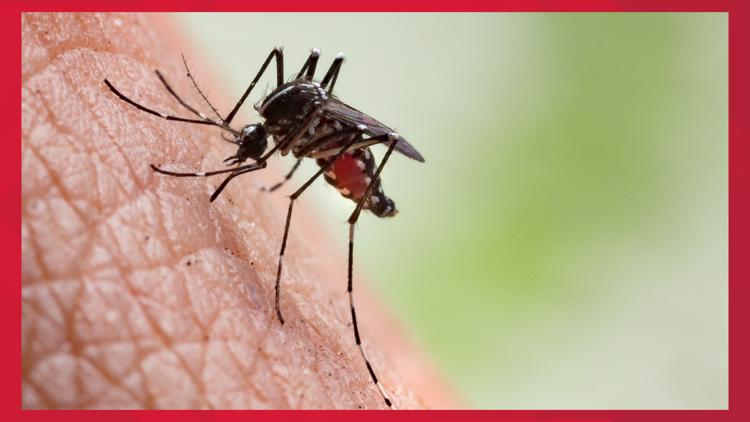DUVAL COUNTY, Fla. — Public health officials are advising residents of an increase in mosquito-borne disease activity in the Duval County area.
According to The Florida Department of Health in Duval County (DOH-Duval), a mosquito-borne illness has been confirmed and there is heightened concern additional residents may become ill.
Several sentinel chicken flocks have tested positive for West Nile virus infection. The risk of transmission to humans has increased.
Local Mosquito Control and DOH-Duval will continue surveillance and prevention efforts but in the meantime, residents and visitors can take basic precautions to help limit exposure.
DOH-Duval says you should remember to “Drain and Cover”:
- DRAIN standing water to stop mosquitoes from multiplying.
- Drain water from garbage cans, house gutters, buckets, pool covers, coolers, toys, flower pots or any other containers where sprinkler or rainwater has collected.
- Discard old tires, drums, bottles, cans, pots and pans, broken appliances and other items that aren't being used.
- Protect boats and vehicles from rain with tarps that don’t accumulate water.
- Maintain swimming pools in good condition and appropriately chlorinated. Empty plastic swimming pools when not in use.
- Wear shoes, socks, and long pants and long-sleeves. This type of protection may be necessary for people who must work in areas where mosquitoes are present.
- Apply mosquito repellent to bare skin and clothing.
- Always use repellents according to the label. Repellents with DEET, picaridin, oil of lemon eucalyptus, para-menthane-diol, 2-undecanone and IR3535 are effective.
- Use mosquito netting to protect children younger than 2 months old.
Products with concentrations of up to 30 percent DEET are generally recommended.
Other U.S. Environmental Protection Agency-approved repellents contain picaridin, oil of lemon eucalyptus, para-menthane-diol, 2-undecanone or IR3535. These products are generally available at local pharmacies.
For more information on what repellent is right for you, consider using the Environmental Protection Agency’s search tool to help you choose skin-applied repellent products: http://cfpub.epa.gov/oppref/insect/#searchform.



